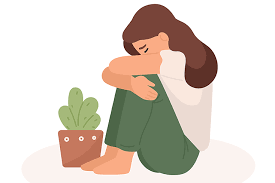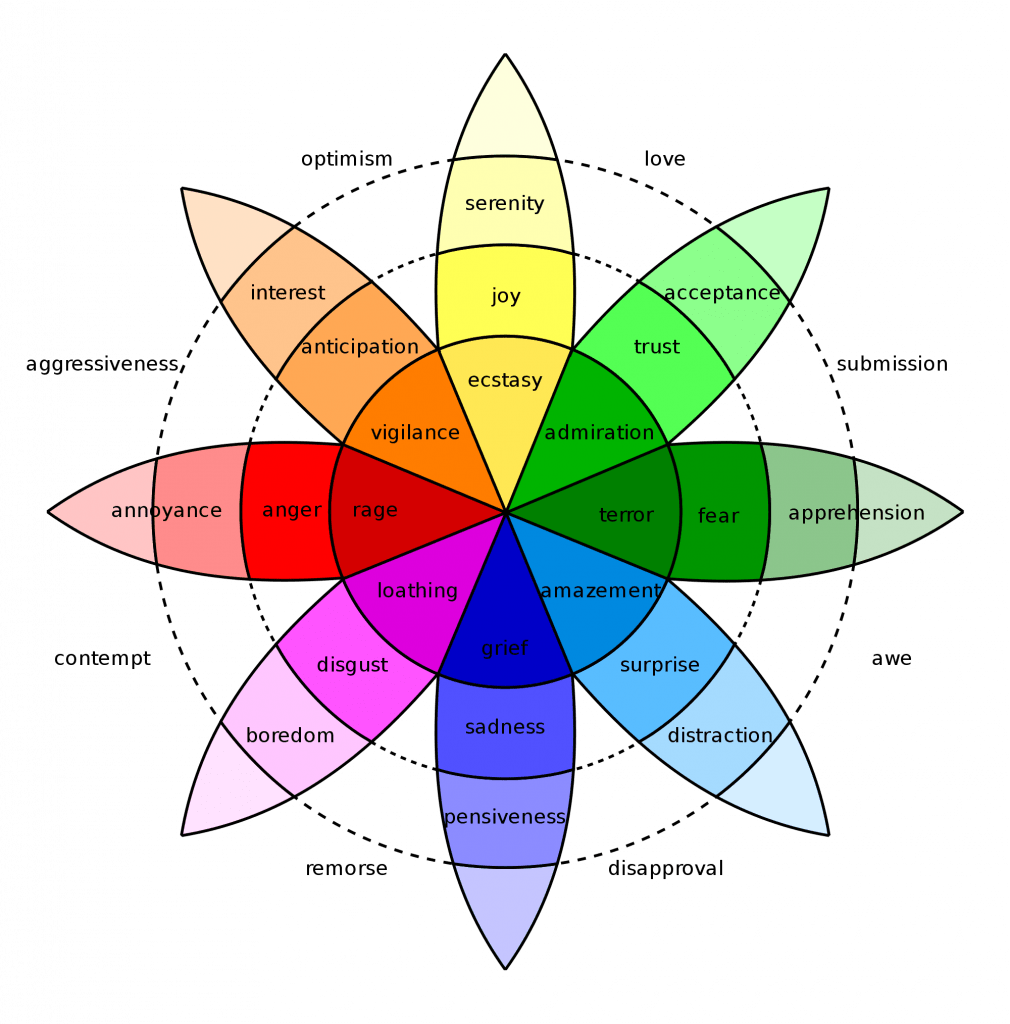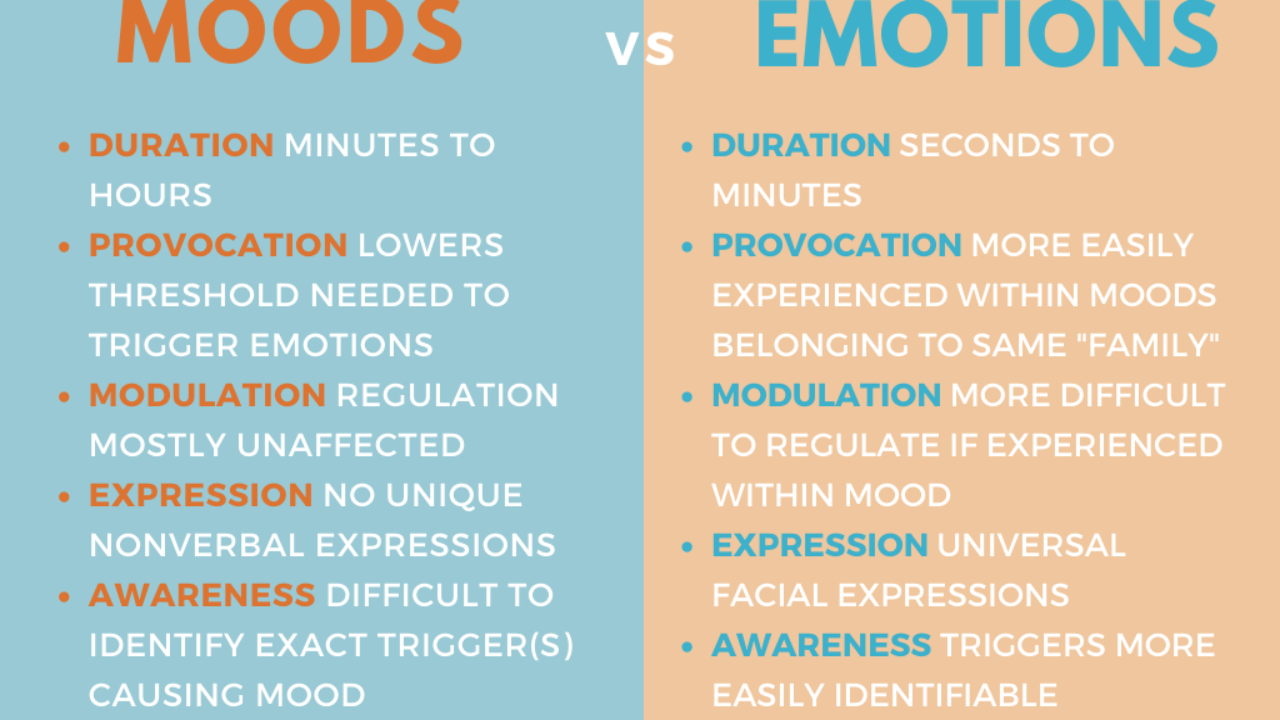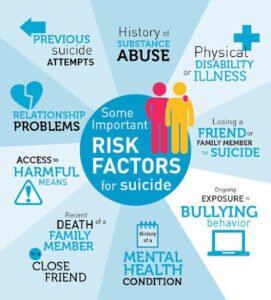The feeling of sadness is an emotional state that many people experience in their lifetime. Life can be difficult, and it’s natural to feel sad when things go wrong or when we lose someone close to us. But sometimes the feeling of sadness persists for much longer than what feels normal, which can lead to a mental health condition known as depression. The nature and effects of depression are important because they impact all aspects of our lives – both physically and emotionally.
Contents
What is Sadness?

Sadness is an emotional state that people experience in response to loss, rejection, or other negative events. Sad feelings are very normal and everyone experiences them at some point. However, sadness may sometimes last for a long time which can lead to depression.
Reasons For Being Sad
Sadness is a mental health condition that can be caused by a variety of factors. While some risk factors are beyond our control, such as genetics and brain chemistry, there are also many external environmental triggers for depression including:

- Being the victim of abuse or violence
- Living in poverty or experiencing other forms of social deprivation
- Having mental health conditions such as anxiety, bipolar disorder, or schizophrenia
- Experiencing stressful events in daily life including financial problems and job loss
- Exposure to abuse of drugs or alcohol at a young age
- Cigarette smoking
What Triggers Sadness?
Sadness is a normal response to negative events. However, there are certain factors that can cause people to experience sadness more intensely than others including:

- Genetics
- Social Factors
- Financial problems
- Job loss
- Cultural discrimination
- Loss of employment or income (e.g., due to illness or disability)
- Stress
- Relationship problems
- Physical illness or pain
- Chronic diseases such as diabetes, cancer, and heart disease. Diseases that cause joint aches and pains such as arthritis can also contribute to feelings of sadness.
- Death of a loved one
- Loss of a loved one
- Loss of social status or influence
- Social pressures (e.g., expectations to succeed at work, school)
- Prolonged exposure to severe weather conditions such as droughts and floods
Moods and Disorders Related To Sadness
Sadness is an emotional state that impacts both the mind and body. Sad feelings can also contribute to moods, disorders, and other mental health conditions including:

- Depression
- Anxiety Disorders
- PTSD (Posttraumatic stress disorder)
- Bipolar Disorder
- Schizophrenia
- Eating disorders
- Self-harm or suicidal thoughts and behaviors.
What are the Effects of Sadness?
Sad feelings can have both physical effects on our bodies as well as emotional ones, especially when they last for a long time, which is often associated with depression. The effects of sadness include:
- Changes in appetite
- Difficulty sleeping
- Low self-esteem or guilt
- Overeating, especially eating high-carbohydrate foods that lead to weight gain and obesity
- Headaches and/or stomach aches.
Risk Factors Of Sadness
Sadness is a normal response to negative life experiences and can be either short-term or long-lasting. However, there are certain factors that put people at increased risk of developing depression including:

- Age (e.g., individuals over the age of 60)
- Genetics (e.g., family history of depression)
- Gender (e.g., women are twice as likely to experience depression than men)
- Substance abuse
- Lack of social support and/or a lack of meaningful relationships with family and friends
- Exposure to trauma or abuse during childhood
- Loneliness and lack of social interactions with others.
- Stress, anxiety, frustration, and other negative emotions can contribute to a difficult home environment. This includes parents who are abusive towards children as well as those who have mental health conditions such as schizophrenia.
Comparison Of Sadness With Other Things
Sadness is often misunderstood. Many people think that it means feeling sad for long periods of time or being constantly upset about something. However, this isn’t the case. Depression refers to a mental health condition where feelings of sadness don’t go away and can affect our daily lives in significant ways.
Sadness vs. Depression
Sadness is a negative emotional state that everyone experiences at times. However, depression refers to feelings of sadness that last for longer periods and interfere with normal daily life.
Symptoms Of Depression
Depression causes people to feel sad in different ways:
- Negative thoughts- They often think about how hopeless and pointless their lives are. They may also think that they are worthless or feel guilty about things.
- Negative behavior- People with depression tend to withdraw from society and suffer physical symptoms of sadness such as difficulty sleeping, weight loss, fatigue, etc.
- Positive thoughts- These are the complete opposite of negative thinking. People with depression often have unrealistic feelings that they can do everything perfectly and will never make mistakes.
Physical symptoms
Physical changes such as difficulty sleeping, fatigue, restlessness, etc., may occur due to mood swings caused by sadness.
How Sadness Can Lead To Depression?
People suffering from depression often feel sad and lonely. So, it’s possible that they may try to find ways to cope with these feelings by resorting to negative coping strategies such as drug abuse or engaging in risky behavior. These coping mechanisms can lead people into a vicious cycle where their sadness gets worse over time leading them deeper into depression.
Sadness vs. Mental Health
Sadness is a normal emotional state that everyone experiences. However, it may sometimes last for long periods of time which can lead to depression and other mental health conditions such as anxiety or bipolar disorder. Depression seriously affects people’s lives both emotionally and physically and should be treated by professionals immediately.
Diagnosis of Sadness
People with depression often feel sad and lonely. So, it’s possible that they may try to find ways to cope with these feelings by resorting to negative coping strategies such as drug abuse or engaging in risky behavior. These coping mechanisms can lead people into a vicious cycle where their sadness gets worse over time leading them deeper into depression.
Depression is a mental health condition where feelings of sadness don’t go away and can affect our daily lives in significant ways. Many people think that it means feeling sad for long periods of time or being constantly upset about something, but this isn’t the case.
People suffering from depression often feel sad and lonely which may lead them to try finding ways to cope with these feelings by resorting to negative coping strategies such as drug abuse or engaging in risky behavior. These can lead people into a vicious cycle where their sadness gets worse over time leading them deeper into depression.
Sadness is often misunderstood and many think that it means feeling sad for long periods of time or being constantly upset about something, but this isn’t the case. Depression refers to a mental health condition where feelings of sadness don’t go away and can affect our daily lives in significant ways, which is often misunderstood as feeling sad for long periods or being constantly upset about something.
Therapy For Sadness
Sadness is something that everyone experiences at some point in their life. However, it’s important to seek professional help if feelings of sadness aren’t going away and are having a significant impact on your daily life.
Talk Therapy
People suffering from depression often benefit from talk therapy as it helps them express their emotions and thoughts out loud which can help heal the wounds.
Medication
Depression is a serious condition that requires immediate medical attention. People with low moods may be prescribed anti-depressants to deal with these feelings in an effective way.
Social Support
Another way to treat sadness is by surrounding yourself with people who care about you and want to help. This helps relieve the isolation that can make depression worse.
Life Changes
Sometimes, people with depression may feel so low that they may not be able to do everyday tasks such as cooking and cleaning. But making small life changes can help them get back on their feet by doing basic things like getting out of bed or showering which will make you feel better about the world around them.
Treatment Of Sadness
Talking to someone you trust is one of the best ways to treat sadness. People suffering from depression often benefit from talk therapy as it helps them express their emotions and thoughts out loud which can help heal the wounds. Anti-depressants are also prescribed for people who have low moods in order to deal with these feelings in an effective way. Another way to treat sadness is by surrounding yourself with people who care about you and want to help. This helps relieve the isolation that can make depression worse. Sometimes, people with depression may feel so low that they may not be able to do everyday tasks such as cooking and cleaning. But making small life changes can help them get back on their feet by doing basic things like getting out of bed or showering which will make you feel better about the world around them.
Conclusion
Sadness is a human emotion that we all experience. Most people know what sadness feels like and how it can affect them, but there are still many misconceptions about the feeling and its causes. In this blog post, I’ll cover some of these myths as well as provide information on depression treatment to help you understand your own feelings or those close to you better. You may be surprised by what science has learned about sadness over the years! If you want more information on other topics related to mental health, please feel free to contact us at our website- www.mentalhealthhelpnow.com – for additional resources and articles from experts in psychology, psychiatry, addiction recovery counseling, and others who have walked where someone else now walks.
If you are looking for affordable Online Counseling MantraCare can help: Book a trial therapy session


